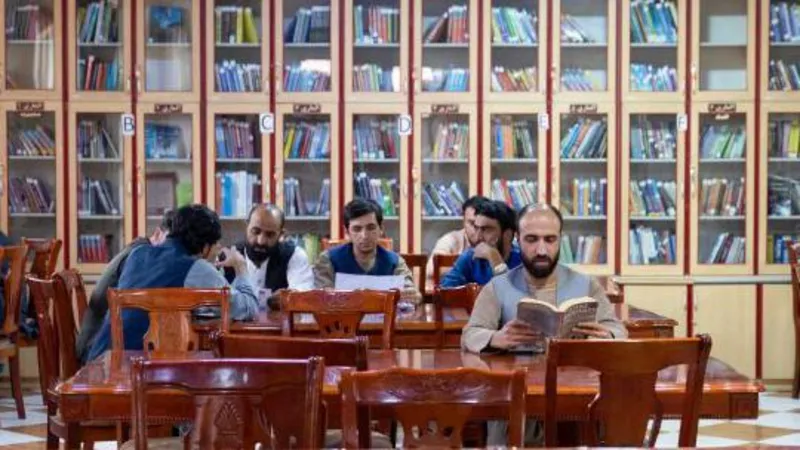World Reacts as UN-Backed Body Declares Famine in Gaza

A United Nations-backed global hunger monitor has officially declared that Gaza City and surrounding areas are experiencing famine — a historic first for the Integrated Food Security Phase Classification (IPC) system outside of Africa. The crisis, described as “man-made” and “preventable,” has drawn swift condemnation and urgent calls for action from world leaders, humanitarian organizations, and civil society.
According to the IPC, 514,000 Palestinians — nearly a quarter of Gaza’s population — are facing famine-level conditions. That number is expected to rise to 641,000 by the end of September, with famine projected to spread to Deir el-Balah and Khan Younis.
The IPC’s Phase 5 classification — the most severe — follows 22 months of war, during which Israeli military operations, blockade of aid, and destruction of infrastructure have exacerbated a humanitarian catastrophe.
UN and Humanitarian Leaders: “This is a Failure of Humanity”
UN Secretary-General António Guterres condemned the crisis as a “moral indictment” of the global community:
“Famine is not only about food; it is the deliberate collapse of the systems needed for human survival… People are starving. Children are dying. And those with the duty to act are failing.”
Guterres reaffirmed Israel’s obligations as an occupying power to allow unhindered humanitarian access.
UNRWA chief Philippe Lazzarini said “months of warnings have fallen on deaf ears,” while UN aid chief Tom Fletcher accused Israeli officials of “openly promoting” starvation as a weapon of war.
Israel: ‘An Outright Lie’
Israeli Prime Minister Benjamin Netanyahu dismissed the IPC report as “an outright lie,” denying a starvation policy and citing over 2 million tons of aid allowed into Gaza since the war began. The Israel- and US-backed Gaza Humanitarian Foundation (GHF) took over aid distribution in May, but has faced criticism after Gaza’s Health Ministry reported more than 2,000 aid-seekers killed, allegedly by Israeli forces.
Hamas and Palestinian Authorities: Famine Confirms a War Crime
Hamas responded by demanding an immediate end to hostilities and the lifting of the Israeli blockade, accusing Israel of using starvation as a “tool of war.”
Gaza’s Government Media Office said the IPC’s famine confirmation “proves war crimes,” adding that Israel’s own aid entry figures “incriminate, not exonerate” the state.
The Palestinian Authority echoed these concerns, saying the report closed “the door to speculation” and demanded urgent international action.
Arab and Muslim States: Urgent Call for Accountability
- Saudi Arabia labeled the famine a “stain on the international community” and blamed the lack of accountability for Israeli actions.
- Kuwait condemned Israel’s “policy of starvation, oppression, and displacement” as a violation of international law.
- The Gulf Cooperation Council (GCC) called on the international community to pressure Israel to open crossings without restrictions and allow humanitarian aid to flow freely.
United Kingdom: “A Moral Outrage”
UK Foreign Secretary David Lammy called the famine “wholly preventable” and “a moral outrage,” directly blaming Israel’s refusal to allow sufficient aid into Gaza.
NGOs and Aid Agencies: Famine Was ‘Deliberate, Predictable, and Preventable’
- Amnesty International called it “a direct consequence of Israel’s campaign of starvation,” accusing the state of pursuing a genocidal policy.
- Red Cross said Israel must meet its obligations under international law to provide for the population.
- Oxfam revealed over $3.3 million worth of food aid was blocked by Israel, calling the famine “entirely driven by Israel’s blockade.”
- Islamic Relief described the situation as “shameful,” reporting children turning into “living skeletons.”
- CAIR (Council on American-Islamic Relations) urged the US to end its support for Israel, saying the famine is an “intended outcome” of its policies.
- Mercy Corps CEO Tjada D’Oyen McKenna warned: “We’re watching our own team members waste away… risking their lives daily just to find bread and water.”
Conclusion: No More Excuses
The IPC’s declaration marks a pivotal moment in the humanitarian crisis in Gaza. International agencies, rights groups, and nations are united in demanding immediate action to halt the famine and open humanitarian corridors. With over 500,000 lives at immediate risk, the cost of inaction grows by the hour.



